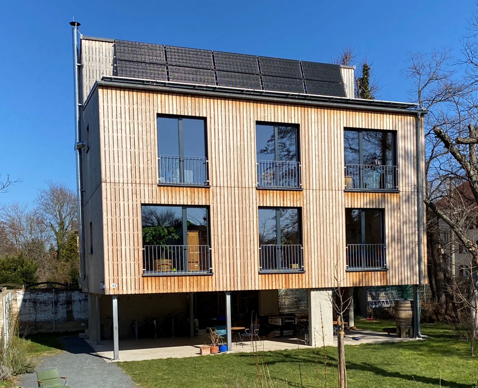![[Translate to English:] Gang N-Gebäude](/fileadmin/HTW/Forschung/4_Zahlen_Daten_Fakten/3_Struktur_und_Einrichtungen/20150828090129-0faf386d-me.jpg)
Research at Faculties
- Civil Engineering
Building materials, railway construction, geotechnics, structural engineering, road construction, water engineering
- Design
Product and communication design
- Electrical Engineering
Elect. Machines & Drives, Electrostatics, Railways & Systems, Vehicle Electronics, Switchgear, Signal Processing, Semiconductors, (Mobile) Radio, RTLS
- Spacial Information
BIM, GIS, 3D modelling, surveying and geodesy
- Informatics/Mathematics
Artificial Intelligence, Human-Machine Interaction, Industry 4.0, Surface Calculation, Modeling & Simulation, Smart Production
- Agriculture/Environment/Chemistry
Chemical Engineering, Horticulture, Environmental Monitoring & Landscape Development, Organic Farming, Animal Husbandry & Breeding, Bio-based Plastics
- Mechanical Engineering
Drive and energy technology, assistance systems, automotive parts and engines, air and refrigeration technology, sensor technology, accident R&D
- Business Administration
SME, Human Factor and Resources, Digital Transformation, Industry 4.0, Technology Transfer, Corporate Governance, Entrepreneurship
Weitere Dokumente/ Antragsformulare finden Sie hier: https://www.htw-dresden.de/en/rt/facilities
Research Institutes and Centres
In addition to classical faculty-related work, four institutes and centres have developed at HTW Dresden in recent years. These focus on concrete aspects of content and work together beyond the boundaries of the faculties.
In addition, the Centre for Applied Research and Technology has been in existence since 1998. (ZAFT), a research centre affiliated to HTW Dresden in accordance with Saxon university legislation. In addition to numerous scientists of the HTW Dresden, external and emeritus researchers are also active here.
The Institute "Building in a Changing Climate" (IBiK) brings together interdisciplinary expertise from the Faculties of Civil Engineering and Mechanical Engineering. The aim of the institute is to make a lasting contribution to climate adaptation in the construction industry and thus to strengthening the resilience of cities and communities to environmental impacts through application-oriented research, consulting and innovation. Based on interdisciplinary scientific findings and in close cooperation with its research and industry partners, innovative construction solutions are developed that effectively and sustainably support the adaptation of the built environment to the consequences of climate change.
The Institute for Applied Electronics (IAE) is a scientific institution at the Faculty of Electrical Engineering. It bundles essential research foci of the faculty and promotes the interdisciplinary scientific cooperation of the participating professorships. The institute focuses on the cooperation with non-university institutions and companies of the free economy.
Close cooperation with theCentre for Applied Research and Technology has proven successful in the research activities of the faculties. Interdisciplinary networking in cross-faculty projects leads to expanded possibilities for innovative solutions. Together with the university, ZAFT guarantees the professional processing and organization of projects.
The Centre for Medium-Sized Businesses is an association of professors and scientists of the Faculty of Economics and Business Administration and external specialists to support the performance of medium-sized companies in Saxony. The focus is exclusively on economic issues of SMEs.




![[Translate to English:] Logo FIF](/fileadmin/HTW/Forschung/4_Zahlen_Daten_Fakten/3_Struktur_und_Einrichtungen/fif-logo.jpg)
![[Translate to English:] Logo ZAFT e. V.](/fileadmin/HTW/Forschung/4_Zahlen_Daten_Fakten/3_Struktur_und_Einrichtungen/LOGO_-_ZAFT_block_deutsch_-_RGB.jpg)
![[Translate to English:] Logo ZfM](/fileadmin/HTW/Forschung/4_Zahlen_Daten_Fakten/3_Struktur_und_Einrichtungen/ZFM_1.png)